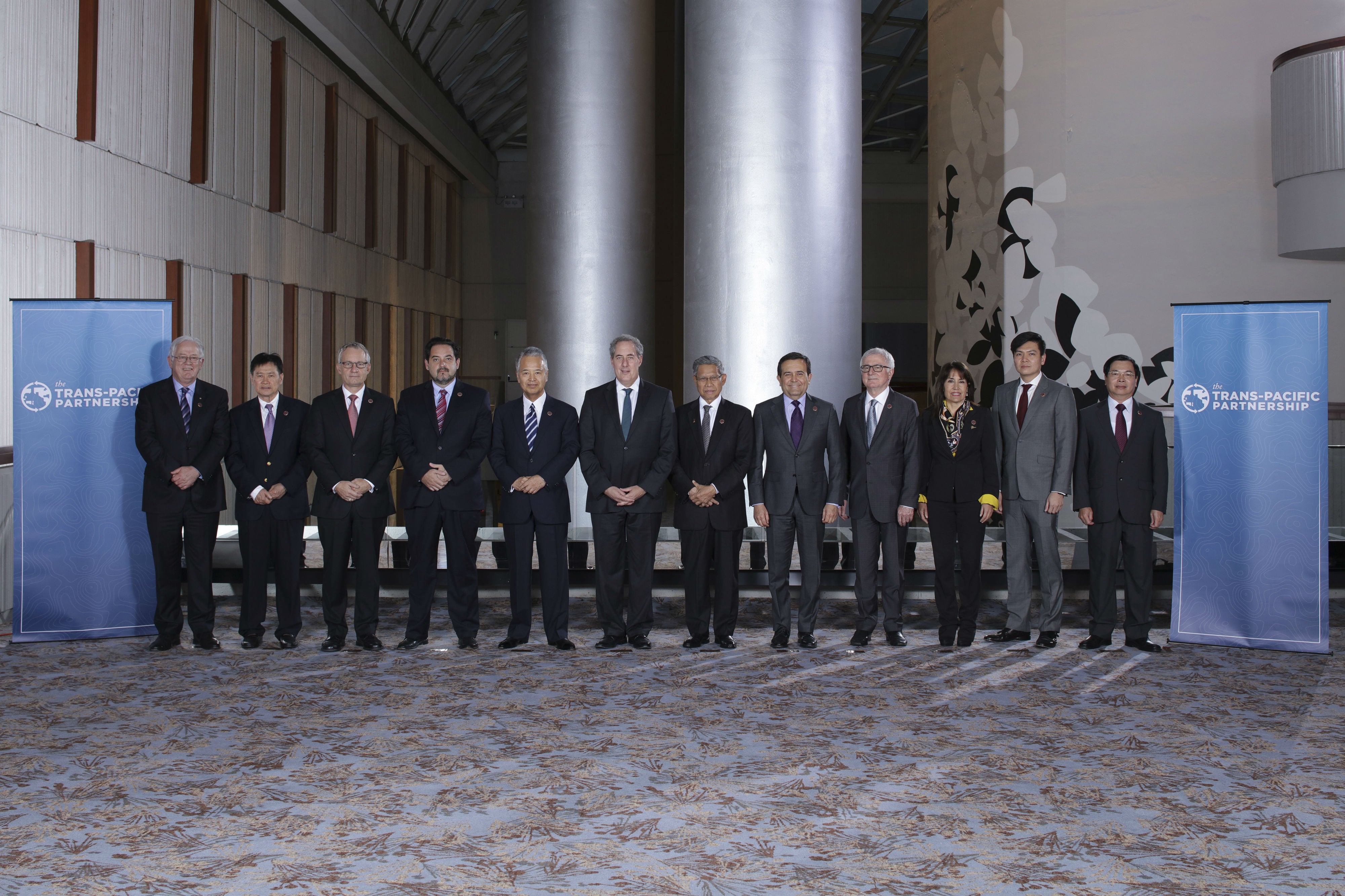Trans-Pacific Partnership: Agreement reached on sweeping trade deal that wil affect 40 per cent of the world economy
The deal has been called the most sweeping trade liberalisation pact in a generation.

Ministers from the US, Japan and ten other nations have reached a deal on the most sweeping trade liberalisation pact in a generation.
The Trans-Pacific Partnership (TPP) will affect 40 per cent of the world economy and could stand as a legacy-defining achievement for US President Barack Obama, if it is ratified by Congress.
The deal will cut trade barriers and set common standards for 12 countries, Reuters reported on Monday morning.
The deal could reshape industries and influence everything from the price of cheese to the cost of cancer treatments.
The final round of negotiations in Atlanta, which began last Wednesday, had snared on the question of how long a monopoly period should be allowed on next-generation biotech drugs, until the United States and Australia negotiated a compromise.
The TPP deal has been controversial because of the secret negotiations that have shaped it over the past five years and the perceived threat to an array of interest groups from Mexican auto workers to Canadian dairy farmers.
Japanese Prime Minister Shinzo Abe welcomed the basic agreement as “a farsighted policy for all participating countries that share the values and try to build a free and fair economic zone".
Mr Obama welcomed the deal.
"I've spent every day of my presidency fighting to grow our economy and strengthen our middle class," he said in a statement.
"That means making sure our workers have a fair shot to get ahead here at home, and a fair chance to compete around the world. My approach to trade has been guided by a unifying principle: leveling the playing field for American workers and businesses, so we can export more products stamped Made in America all over the world that support higher-paying American jobs here at home."
Subscribe to Independent Premium to bookmark this article
Want to bookmark your favourite articles and stories to read or reference later? Start your Independent Premium subscription today.

Join our commenting forum
Join thought-provoking conversations, follow other Independent readers and see their replies